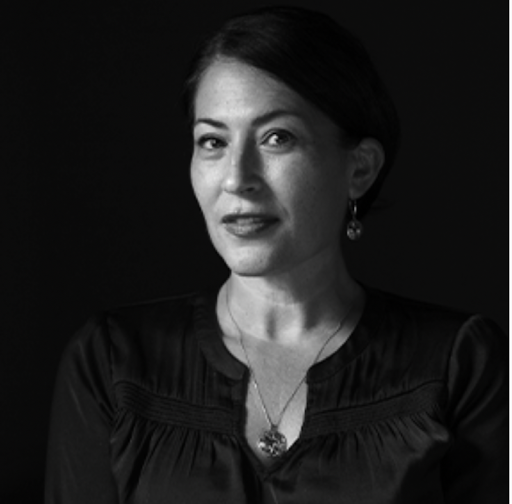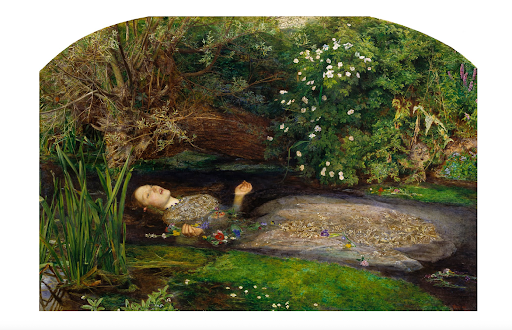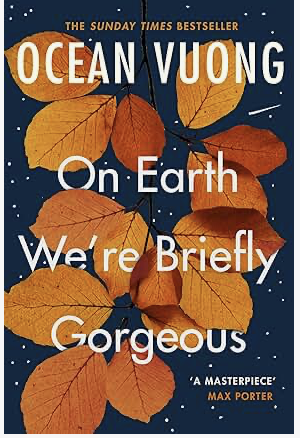Texts of the poems:
Tento recordar: um vigor primário.
Miguel Royo
Tento recordar: um vigor
primário ecoa-me pela medula
e renasce na nuca arrepiando-me
o esquecimento e forçando-me a regressar.
Tenho o sangue contaminado pelo tempo. Levo
uma criança coagulada no plexo: no início foi a infância.
Escuto os cascos que me batem contra a cerâmica
interna do corpo. Não sei o que espera
para desimpedir as condutas obstruídas da puberdade
e soltar galope: criança cabra, garraio. Sofro-lhe os chifres
que esfregam precários o mel dos alvéolos
com o fastio de permanecer encerrada.
Tornam-se de âmbar escuro ou de obsidiana.
E bastaria um bramido ou investida entre o tórax
e o pensamento emergente para crescer por dentro e soltar
a criança com chifres pelos corredores capitulados. Levar as patas
preparadas sobre a cabeça como uma crina para o escape.
Porque eu seria a criança fera nessa hipótese.
I try to remember: a primal vigour
I try to remember: a primal vigour
echoes through my marrow
and is reborn in the scruff chilling
my oblivion and forcing me to return.
My blood is contaminated by time. I carry
a clotted child in my plexus: in the beginning was childhood.
I hear the hooves beating against the inner
ceramics of my body. I don’t know what it’s waiting
to clear the clogged ducts of puberty
and break into gallop: goat-child, bullock. I suffer the horns
that precariously rub the honey from the alveoli
with the aversion of remaining enclosed.
They turn black amber or obsidian.
And all it takes is a roar or a thrust between the thorax
and the emerging thought to grow inside and unleash
the horned child into the capitulated corridors. Carrying the pawns
prepared over the head like a mane for escape.
Because I would be the wild child in that hypothesis.
Fountain II
Herberto Helder
II
No sorriso louco das mães batem as leves
gotas de chuva. Nas amadas
caras loucas batem e batem
os dedos amarelos das candeias.
Que balouçam. Que são puras.
Gotas e candeias puras. E as mães
Aproximam-se soprando os dedos frios.
Seu corpo move-se
pelo meio dos ossos filiais, pelos tendões
e órgãos mergulhados,
e as calmas mães intrínsecas sentam-se
nas cabeças filiais.
Sentam-se, e estão ali num silêncio demorado e apressado,
vendo tudo,
e queimando as imagens, alimentando as imagens,
enquanto o amor é cada vez mais forte.
E bate-lhes nas caras, o amor leve.
O amor feroz.
E as mães são cada vez mais belas.
Pensam os filhos que elas levitam.
Flores violentas batem nas suas pálpebras.
Elas respiram ao alto e em baixo. São
silenciosas.
E a sua cara está no meio das gotas particulares
da chuva, em volta das candeias. No contínuo
escorrer dos filhos.
As mães são as mais altas coisas
que os filhos criam, porque se colocam
na combustão dos filhos, porque
os filhos estão como invasores dentes-de-leão
no terreno das mães.
E as mães são poços de petróleo nas palavras dos filhos,
e atiram-se, através deles, como jactos
para fora da terra.
E os filhos mergulham em escafandros no interior
de muitas águas,
e trazem as mães como polvos embrulhados nas mãos
e na agudeza de toda a sua vida.
E o filho senta-se com a sua mãe à cabeceira da mesa,
e através dele a mãe mexe aqui e ali,
nas chávenas e nos garfos.
E através da mãe o filho pensa
que nenhuma morte é possível e as águas
estão ligadas entre si
por meio da mão dele que toca a cara louca
da mãe que toca a mão pressentida do filho.
E por dentro do amor, até somente ser possível
amar tudo,
e ser possível tudo ser reencontrado por dentro do amor.
poesia toda
assírio & alvim
1996
Fountain II
Herberto Helder
On the mother's mad smiles the raindrops
patter down. On their beloved
mad faces the lanterns tap
their yellow fingers.
Swaying. Pure.
Pure raindrops and lanterns. And the mothers
draw near, blowing on their cold fingers,
moving their bodies
through filial bones, tendons,
submerged organs.
And the intrinsic mothers calmly sit down
inside filial heads.
They sit there in slow and urgent silence,
seeing everything
and burning the images, fuelling the images,
while love keeps getting stronger.
Showering them in the face. Tender love.
Fierce love.
And the mothers are ever more beautiful.
Think the sons whom the mothers levitate.
Violent flowers strike their eyelids.
Above and below they breathe
in silence,
theirs faces gleaming in the spray
of raindrops,
around the lanterns. In the continuous
pouring down of sons.
Mothers are the loftiest things
created by sons, since they dwell
in their sons' deflagration, since
sons are like dandelion invaders
in their mothers' terrain.
And mothers are oil wells in the speech of their sons,
spurting through them
from out of the earth.
And the sons dive, in rubber suits, into the depths
of myriad waters
with the mothers wrapped like octopi around their hands
and around their tenderest nerves.
And the son sits with his mother at the head of the table.
Through him the mother fiddles
with the teacups and the forks,
and through her he thinks
no death is possible, and the waters
are connected
through his hand touching the mad face
of his mother who can sense his touch
and through love, in love, until it's only possible
to love everything
and it's possible to rediscover everything through love.
© Translation: 2002, Assírio & Alvim
Translated by Richard Zenith
From: Sights from the South 1, 2002
Retrato
Luis Miguel Nava
A pele era o que de mais solitário havia no seu corpo.
Há quem, tendo-a metida
num cofre até às mais fundas raízes,
simule não ter pele, quando
de facto ela não está
senão um pouco atrasada em relação ao coração.
Com ele porém não era assim.
A pele ia imitando o céu como podia.
Pequena, solitária, era uma pele metida
consigo mesma e que servia
de poço, onde além de água ele procurara protecção.
Portrait
Luís Miguel Nava
Skin was the loneliest part of his body.
There are those who, having locked it
in a chest as deep as the deepest roots,
pretend to not have skin, when
in fact it is but a bit behind in relation to the heart.
With him however it wasn’t like that.
His skin would imitate the sky as best it could.
Small, alone, it was a shy,
a timid skin, which served as a well,
wherein, more than water, he would seek protection.
Translation by Alexis Levitin and Ricardo Vasconcelos
Do Inexplicável
Daniel Faria
Como reporás a terra arrastada
Para a boca?
Foges e foges
E repousas à sombra da velocidade.
E ao extinguires-te dizes
Tudo
O que podia ser dito
Sobre a luz.
Of The Inexplicable
Daniel Faria
How will you replace earth dragged
Towards the mouth?
You run and run
And rest under the shade of speed.
And as you extinguish yourself, you say
Everything
That could have been said
About light.
Translation by João-Maria, on Caliath blog
Há algo que suspeito: a morte é
Miguel Royo
Há algo que suspeito: a morte é
mais um ponto no útero do tempo. Coordenada
que se alastra nas artérias de Deus. Uma brecha
por onde cabe a mínima ave branca. A pedra muda
ou trepadeira no nosso plexo translúcido.
E confunde-se a origem da luz.
Não sabemos se é o reverso da sombra. Apenas
que o coração está à vista e baloiça sobre as costelas
como Cristo, o funâmbulo. Que o sangue se torna ruidoso
escavado no vazio escuro e o mistério introduz dois dedos
obcecados com a linha do horizonte.
Ignorando os sinais que proíbem a revelação.
Do lado inverso da revelação não há nada
a não ser um vazio onde cabem todas as coisas: os ossos,
a merda, o tempo, o hálito desde dentro. Não há distinção
entre um crucifixo e o pássaro abatido no zénite
do seu voo. Somente o pio que se lhe ouve
do outro lado da fissura ou uma pena que esvoaça
antes de embater contra a chapa da balança.
Por isso apago a luz e apalpo no escuro: sei que é na sombra
que está camuflada a figura de Deus. Nesse território de rostos
ao contrário e ruído gaussiano um vulto ganha relevo
ignorando os sinais que proíbem a revelação.
There’s something I suspect: death is
Miguel Royo
There’s something I suspect: death is
just another stitch in the womb of time. A coordinate
that spreads through God’s arteries. A gap
through which the minimal white bird can fit. The mute stone
or creeper in our translucent plexus.
And the origin of light is confused.
We don’t know if it’s the reverse of the shadow. Only
that the heart is visible and it swings on the ribcage
like Christ, the funambulist. That blood becomes loud
excavated in the dark hollowness and mystery inserts two fingers
obsessed with the horizon line.
Ignoring the signs that forbid revelation.
On the reverse side there is nothing
but a void where all things fit: bones,
shit, time, breath from within. There is no distinction
between a crucifix and the bird shot down at the zenith
of its flight. Only the chirp you hear
on the other side of the fissure or a feather that flutters
before hitting the balance plate.
That’s why I switch the light and grope in the dark: I know that
it is in the shadows that God’s figure is camouflaged. In this territory of
upside-down faces and Gaussian noise a shape gains prominence
ignoring the signs that forbid revelation.
About Miguel Royo
Miguel Royo was born in Spain in 1993 and, after a brief stay in Brussels during his childhood, settled in Porto. He studied architecture at the University of Porto. His academic training was marked by parallel interests in cinema and literature, which converged in his final master's dissertation on Tarkovsky's film ‘Stalker’. He collaborates with poetry magazines and websites, such as ‘Caliban’, ‘Enfermaria 6’, ‘Revista Lote’. He has made two short films to date: ‘ÍPSILON’ (2014) and ‘Sueño Ivre In The Red Haus’ (2019). His first book of poetry, ‘Na Pedra a Luz Afia o Gume’ (In the Stone the Light Sharpens the Edge), is from 2021.
https://www.enfermaria6.com/miguel-ezcurdia-royo
https://www.enfermaria6.com/blog/2018/5/30/d81inly4iogfty36p3hi5qc12aqm2t
https://revistacaliban.net/depois-do-amor-a-quarentena-1a15677028e8
https://revistacaliban.net/instruções-para-iniciar-o-dia-6de7e6fc6629








































